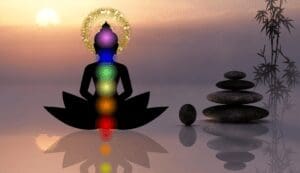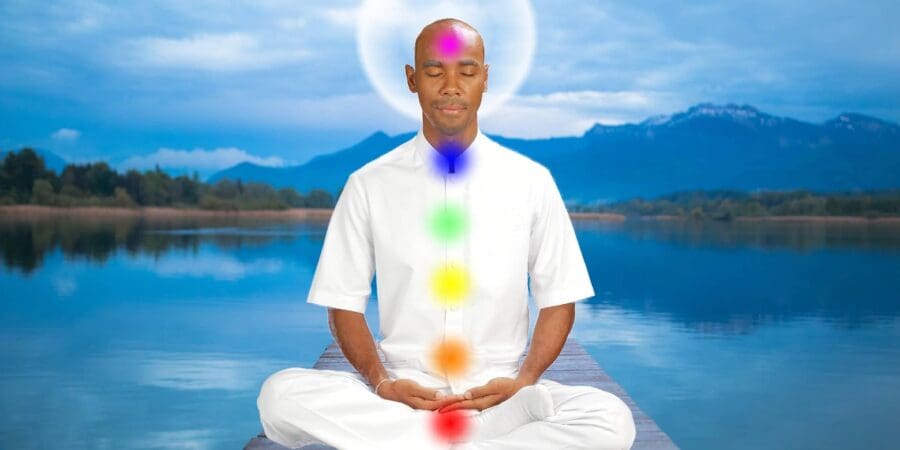Reiki which is now practiced Worldwide dates back to the teachings of Mikao Usui in Japan in the early 1920’s. Usui was a lifelong spiritual student and teacher. His intense spiritual practices led to the culmination and practice of Reiki, which he then offered his teachings to others, hence the beginning of the Reiki journey.
It is a form of alternative medicine called energy healing, balancing the chakras and cleansing the aura to promote self healing. Trained Reiki Practitioners are able to transfer this energy during healing sessions, to assist with physical, emotional and spiritual wellbeing.

One of the greatest Reiki healing health benefits is stress reduction and relaxation, which triggers the body’s natural healing abilities, and improves and maintains health.
When the flow of the “Life Force Energy” is disrupted, weakened or blocked, emotional or health problems tend to occur. Imbalances can be caused from many situations occurring in our lives, such as emotional or physical trauma, injury, negative thoughts and feelings, including fear, worry, doubt, anger, anxiety, negative self talk, toxicity, nutritional depletion, destructive lifestyle and relationships, neglect of self and lack of love for oneself or others, from emotions that are not expressed in a healthy way.
So
The Multifaceted Benefits of Reiki
Reiki, an ancient Japanese form of energy healing, offers an array of benefits to those who receive it. These advantages span from the physical realm to the emotional, mental, and spiritual, making it a comprehensive healing approach. For those seeking an alternative or complementary therapy to enhance their overall wellbeing, Reiki emerges as a frontrunner, and here’s why:
- Holistic Wellbeing: Reiki doesn’t merely address symptoms; it goes to the root, providing deep relaxation that alleviates stress and tension from the body.
- Natural Self-Healing: Reiki taps into the body’s innate ability to heal itself, accelerating this process and aiding in overall recovery.
- Improved Sleep: Those plagued by insomnia or disrupted sleep patterns often find solace in Reiki, reporting enhanced sleep quality post-treatment.
- Stabilized Blood Pressure: Reiki can help maintain and reduce blood pressure, promoting cardiovascular health.
- Alleviating Chronic and Acute Issues: From recurring problems like asthma and eczema to acute injuries, Reiki offers relief and support.
- Breaking Free from Addictions: Reiki plays a pivotal role in addiction recovery. As it is providing the strength and clarity needed during the journey.
- Pain Management: Whether it’s a chronic ache or an acute pain, Reiki can assist in diminishing its intensity. Aside from that it can provide comfort.
- Harmonizing Energy Flow: By removing energy blockages, Reiki ensures a smooth flow, especially in the endocrine system, resulting in bodily balance.
- Detoxification: Reiki sessions aid the body in expelling toxins, ensuring optimal function and reducing the potential for illnesses.
- Post-Treatment Recovery: After procedures like surgeries or chemotherapy, Reiki can reduce side effects and speed up recovery.
- Boosted Immunity: With regular sessions, the immune system is fortified, better preparing the body to ward off diseases.
- Elevated Energy Levels: Those feeling drained or fatigued often experience a surge in vitality and energy after Reiki treatments.
- Rising Vibrational Frequency: On an energetic level, Reiki elevates the body’s vibrational frequency, aligning it with positive energies.
- Spiritual and Emotional Development: Beyond the physical, Reiki fosters spiritual growth and emotional clarity. It helps with the release of pent-up feelings, ensuring holistic wellness.
Incorporating Reiki into one’s life can be transformational, offering not just relief from ailments but also paving the way for a balanced and enriched existence.
Who Practices Reiki?
While all healers affect life energy, not all healers use reiki. Reiki is a specific form of energy medicine, and can only be performed by someone that has been attuned to it. Anyone can be attuned to practice reiki, and once you have been attuned you retain the gift of reiki for the rest of your life.
Reiki is part of the Eastern energetic medical tradition, and is even beginning to find a place in western hospitals.
It is practiced in communities around the world, by everyday people and by medical professionals both in the alternative and traditional healing worlds.
Why Learn Reiki?
Reiki is one of the safest energy healing modalities that ANYONE can learn to restore their own energy levels. You don’t have to be naturally born gifted or trained from a young age, you can choose to share your healing with family, close friends and pets.
Reiki also very often opens the door to developing a deeper spiritual connection, through the opening of the third eye, many students feel their intuition deepens over time. Often developing clairvoyance and other spiritual channels.
What to expect during a healing session
During a Reiki Healing you will often feel heat, sometimes intense in certain areas of the body. This is the energy shifting and moving to where it needs to be. Most people feel deep relaxation from receiving reiki, similar to entering a meditation. Others experience seeing colours or images during their time, and very often emotions are released. It can also bring more positive feelings and a sense of clarity.
Finally, it is just a wonderful energy to work with, whether you keep it for yourself or choose to become a Practitioner, it will definitely be a worthwhile journey.
The Principles of Reiki
Central to Reiki are the five principles or precepts that act as a guide for all its practitioners. These principles are:
- Just for today, I will not be angry.
- Just for today, I will not worry.
- Just for today, I will be grateful.
- Just for today, I will do my work honestly.
- Just for today, I will be kind to every living thing.
These precepts are not just rules, but a way of life, reminding practitioners of the importance of living in the present and embracing each moment with positivity.
How is Reiki Different from Other Energy Healing Techniques?
While there are various energy healing modalities available, Reiki stands out for its simplicity and universal nature. Unlike other practices which may require rigorous training or the understanding of complex theories,Reiki is easily accessible to anyone, regardless of their background or beliefs. The energy channeled during a Reiki session is unconditional and does not discriminate, making it a pure form of healing.
The Process of Attunement
One of the foundational elements of Reiki is the process of attunement. This sacred ritual is what differentiates a Reiki practitioner from someone who hasn’t been initiated into the practice. During an attunement, a Reiki Master transmits the energy and symbols of Reiki to the student, enabling them to channel the healing energy. It’s a profound, often life-changing experience that connects the student to the lineage of Reiki masters dating back to Mikao Usui.
Incorporating Reiki into Daily Life
For many, Reiki isn’t just an occasional healing session but a lifestyle. Incorporating Reiki into daily routines can be a way to maintain balance and harmony. This could be as simple as giving oneself a short Reiki treatment before sleep, using Reiki to bless food, or even sending Reiki to situations or people in need. With regular practice, Reiki becomes an intuitive tool that’s readily available to aid in any circumstance.
Conclusion: The Universal Appeal of Reiki Healing
The beauty of Reiki lies in its universal nature. Regardless of age, background, or beliefs, anyone can benefit from its healing energy. As the world becomes more complex and often stressful, the simplicity and purity of Reiki offer a sanctuary. Whether one seeks physical healing, emotional clarity, or spiritual growth, Reiki stands as a beacon, guiding us towards a path of holistic well-being and interconnectedness.

